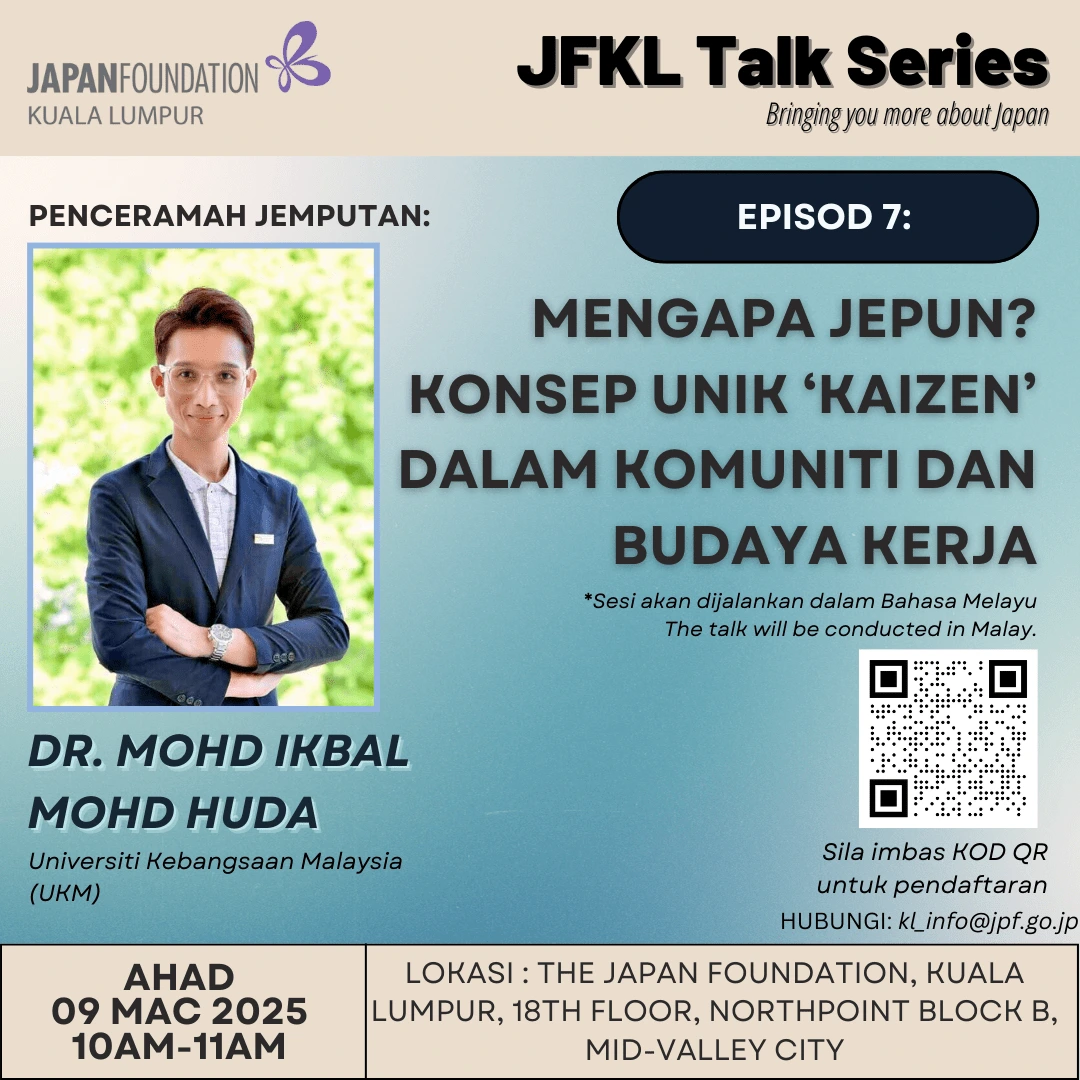18th Floor, Northpoint Block B,
Mid-Valley City, No. 1, Medan Syed Putra,
59200 Kuala Lumpur, Malaysia

- This event has passed.
JFKL Talk Series
Start Date: 9/3/2025 ::: Organized By JFKL
Event Navigation

JFKL Talk Series is a programme initiated to reach out to everyone and introduce more about Japan through the lenses of professionals in various fields. Through this programme, we hope that it is able to showcase the charms of Japan and instil curiosity on the multifaceted culture of the Land of the Rising Sun.
EPISODE 7
Sunday, 9 March 2025, 10:00 AM

The 7th episode is coming soon! Scan now to register, or click the link here: https://forms.gle/TgkzEWjdGHU2cvNPA.
Past year’s JFKL Talk Series:

